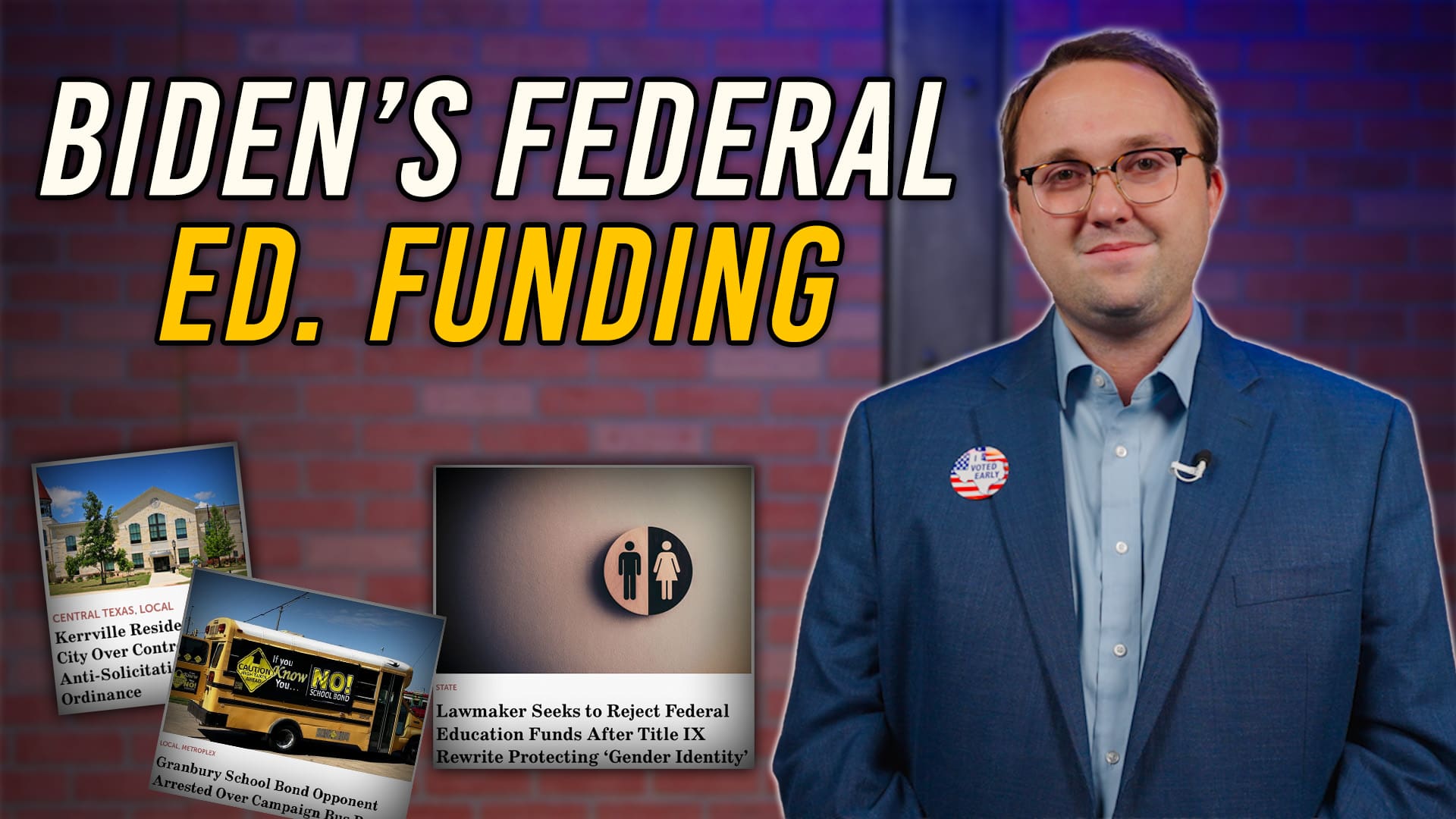Tomorrow the Texas Ethics Commission (TEC) will vote whether to institutionalize the biased approach it took when dealing with Texas Attorney General Ken Paxton.
At its bi-monthly meeting, the unelected agency tasked with enforcing the state’s so-called “ethics laws” regulating speech will consider a rule change to force anyone requesting an ethics advisory opinion from the agency to reveal their identity to the commissioners.
The TEC is tasked with advising elected officials, candidates, and ordinary citizens on laws related to elections, lobbying, and public office. Typically the advisory opinion requests can be made anonymously and based on hypothetical facts.
This change would allow the TEC to institutionalize the approach it took with Paxton, where the commissioners rigged a vote to ensure a policy beneficial to the attorney general failed.
Last year, Paxton’s liberal political opponents – who could not defeat him at the polls – successfully procured highly questionable indictments against him in Collin County relating to his personal business. The goal of the indictments is to drive Paxton out of office, opening the field for his opponents to be appointed to an office they can’t win at the ballot box.
The attack on Paxton is particularly perverse. By indicting him for behavior outside of his public office, he’s prohibited from using campaign funds in his defense. But, because he is a public official, he also cannot raise money in Texas for his legal defense or accept pro-bono or discounted legal defense from attorneys sympathetic to the injustice of the indictments against him.
Were Paxton to have been indicted for public corruption, on the other hand, he would have been able to spend campaign funds defending himself. But because the indictment relates (at least on paper) to his personal business, by default he can only use his personal funds on his legal defense.
The indictments are designed to squeeze Ken Paxton’s personal finances, and drive him out of office. But, state law appears to allow a narrow exception. Paxton should be allowed to lawfully raise money for his legal defense from out of state, since those contributors would not typically be under his “jurisdiction” as attorney general.
Last December, the question ended up in front of the Texas Ethics Commission in the form of an advisory opinion request. The request did not officially come from Paxton’s legal team, but it was assumed by the commission and the media to relate to his particular case.
When the TEC finally addressed the question in February, its staff circulated a draft advisory opinion that would have approved the out-of-state fundraising. The legal question seemed clear.
The TEC commissioners, however, had no intent in approving that opinion, which would have aided Paxton’s defense. They planned to block the staff opinion, but when it came time to vote, the commissioners botched it. On the first vote, they accidentally adopted the opinion authorizing the fundraising.
After lengthy discussion, TEC Chairman Paul Hobby, a Democrat, called for a vote and there were five ayes, and two nays. Hobby quickly announced that the vote to approve the pro-Paxton advisory opinion had failed. But he was corrected by TEC Executive Director Natalia Luna Ashley, who informed Hobby that unlike the adoption of TEC rules, which require six votes, advisory opinions only required five votes.
Ashley suggested they call the vote again. This time a slow roll call vote was taken and three commissioners – Jim Clancy, Bob Long, and Tom Ramsay – got back on script by voting against adopting the draft advisory opinion. With only a four-to-three majority of commissioners supporting the opinion, its adoption failed.
The result was, in effect, for the TEC to declare the issue of raising out-of-state funds for a legal defense a grey area in the law. The TEC staff and a majority of the commissioners publicly declared their belief that the practice is legal. However, because the vote didn’t meet the five vote threshold, the TEC failed to give any binding advice that would protect Paxton, or any other Texan who might choose to engage in the process, from future criminal indictment.
If the TEC adopts its rule requiring the submission of identifying information with advisory opinion requests, Texans can expect this sort of behavior in every instance. The new rule is a brazen attempt to institutionalize TEC bias against conservatives.




